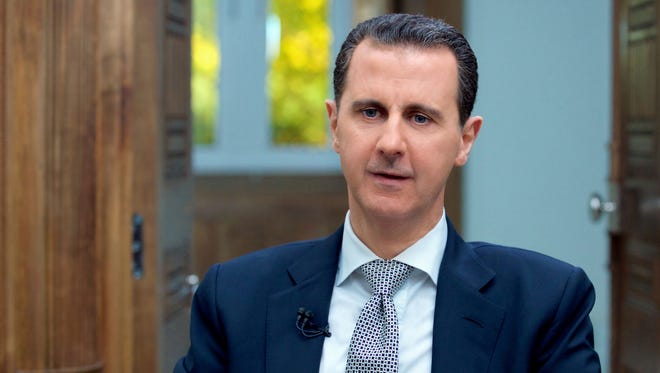Report: Trump plans to end CIA training program for moderate Syrian rebels

President Trump has decided to halt a CIA training program for moderate Syrian rebels battling the government of Bashar Assad, the Washington Post reported.
The news organization attributed the report to unnamed U.S. officials.
The move has long been pushed by Russia.
The training program was the spine of a policy launched by the Obama White House in 2013 to pressure Assad to step down, but backers questioned its effectiveness after Russia sent forces to Syria in 2015, according to the Post.
The move signals the White House's limited desire to remove Assad, the Post reported.
President Trump made the decision to halt the program about a month ago after meeting with CIA Director Mike Pompeo and National Security Adviser H.R. McMaster before the July 7 Group of 20 summit with Russian President Vladimir Putin and other world leaders, the Post reported.
The National Security Council and CIA declined to comment to the Post.
After the Group of 20 meeting between Trump and Putin, Russia and the United States announced an agreement to support a new cease-fire in southwest Syria along the border with Jordan - an area where many of the CIA-trained rebels have operated - the Post reported. However, the decision to end the training was not a condition of the agreement, the Post said it was told by unnamed U.S. officials.
Russia's involvement in the White House campaign is under heavy scrutiny.
U.S. Sen. Lindsey Graham, R-S.C., issued a series of tweets Wednesday saying the move was troublesome. He referred to it as a "complete capitulation to Assad, Russia and Iran" and he said it would be a loss for Syrians who have been attacked by Assad, the United States' Arab partners and American standing in the Middle East.
Current and former federal officials told the Post that the move was a major concession.
"We are falling into a Russian trap," Charles Lister, senior fellow with the Middle East institute, told the news organization. "We are making the moderate resistance more and more vulnerable ... We are really cutting them off at the neck."